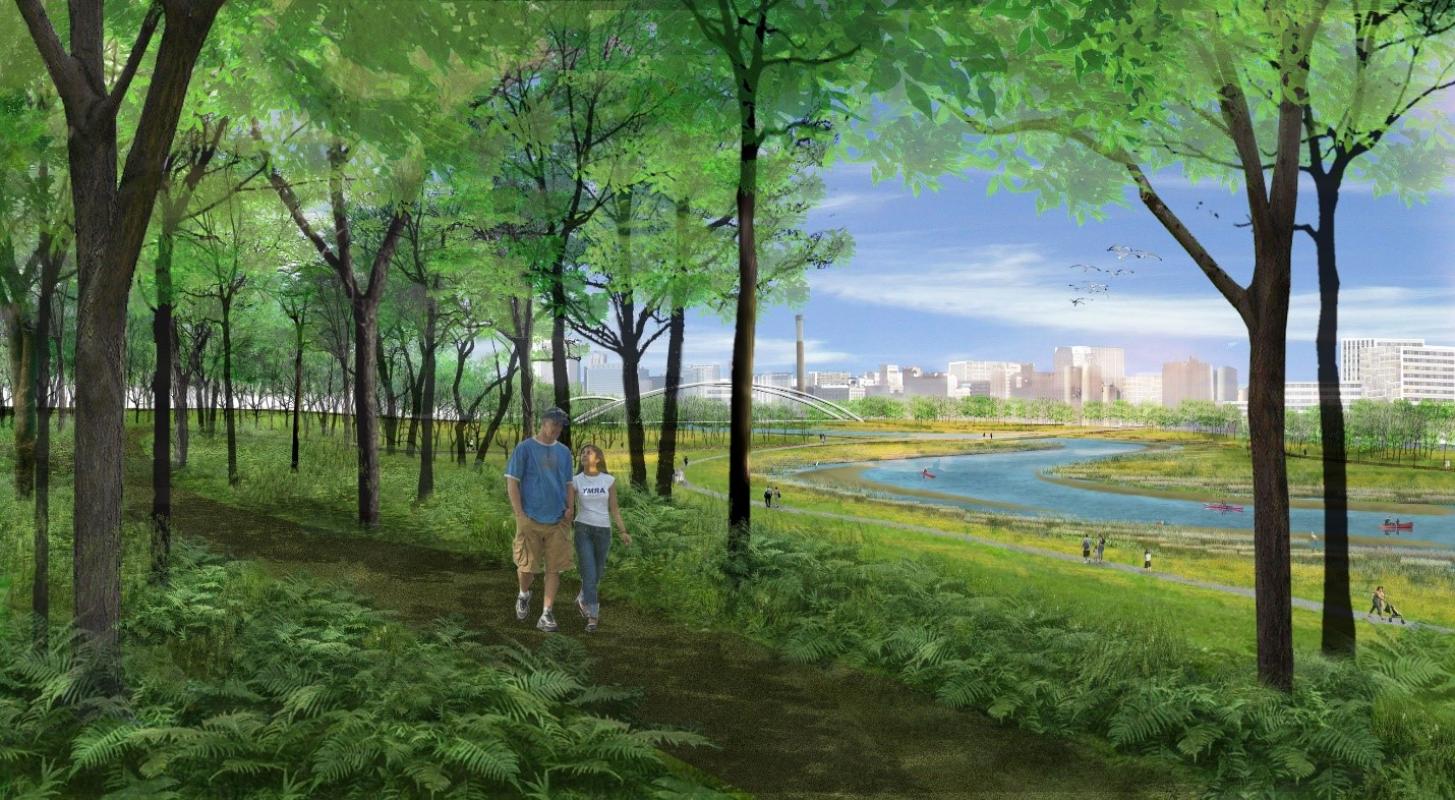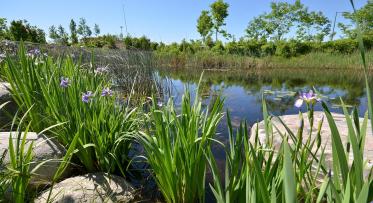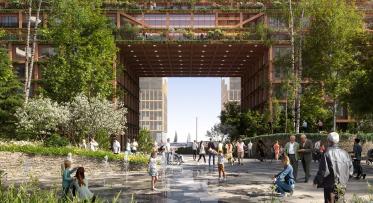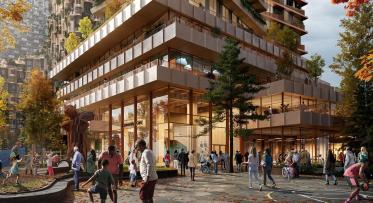A Fresh Perspective on Sustainability: Developing a New Resiliency and Innovation Framework
Plans to revitalize the Port Lands and naturalize the mouth of the Don River will incorporate climate positive strategies – such as green infrastructure, energy efficient buildings, renewable energy, and passive design – setting a compelling example for other cities to follow.
POSTED: JANUARY 15, 2016
BY: ANNA PALAMARCHUK
Waterfront Toronto introduced its Sustainability Framework in 2005. This framework translated broad concepts and general commitments to sustainability into a clear vision and concrete objectives, strategies, actions and targets. It helped us integrate principles of sustainability into all aspects of how we make decisions in the planning, design, approvals and construction phases of our work. It has served as a valuable roadmap as we transform the waterfront into vibrant and sustainable mixed-use communities.
With the Sustainability Framework as our foundation, we developed several tools, such as our award-winning Minimum Green Building Requirements, Environmental Management Plan, and Parks and Public Spaces Guidelines, which have helped us, and our partners, achieve many important green building, energy conservation, waste management, water efficiency and natural heritage objectives. For example, one of the targets from our Sustainability Framework is for all new buildings to achieve LEED Gold certification. As a result, this requirement was incorporated into our Minimum Green Building Requirements, which are mandatory performance standards that all of our developers must comply with.
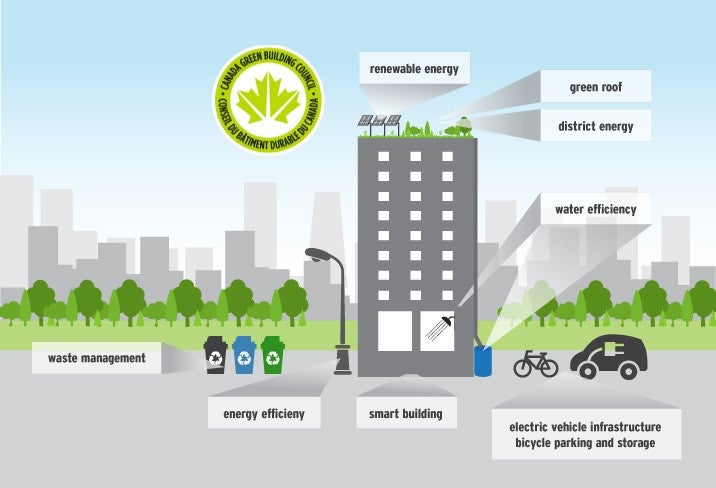
In 2012, Waterfront Toronto received the Award for Excellence in Urban Sustainability from the GLOBE Foundation for its updated Minimum Green Building Requirements. The GLOBE Awards are Canada's most high profile annual national environmental awards for outstanding achievement in environmental stewardship.
Many of the performance measures stemming from our Sustainability Framework are being implemented, tracked, and publicly reported in our Corporate Social Responsibility and Sustainability Report [PDF].

Four LEED® Gold buildings have been completed on the waterfront and several more are under design and construction or under review by the Canada Green Building Council.
Together with our successes, we have also identified areas where we can do better. For example, some of the actions and targets under the Sustainability Framework were vague, leading in some cases to weaker implementation than desired. Also, clear targets were not applied consistently across strategies and objectives.
Building on the successes of the Sustainability Framework and the lessons learned, we are developing a new Resiliency and Innovation Framework. The new framework will focus on climate change resiliency, advanced innovation, and smart cities development. To do this, we’ve engaged the Canadian Urban Institute, Canada's applied urban policy institute with a mandate to build wisdom and inspire leadership for healthy urban development. Together, we are identifying, at a high level, existing and emerging risks and vulnerabilities, outlining a new vision, and updating objectives, strategies and targets. The new framework will also define pilot opportunities and tools to put our plans into effect, making this an actionable plan that will result in tangible outcomes.
Once the guiding vision and specific themes and focus areas have been identified, a benchmark review will be conducted to guide the remainder of the work. Canadian Urban Institute has gathered experts in planning, climate change policy, resiliency planning, building systems and energy, and water resources to review local and international best practices in each focus area to identify the key standards, tools and performance measures used to drive sustainability and resilience.
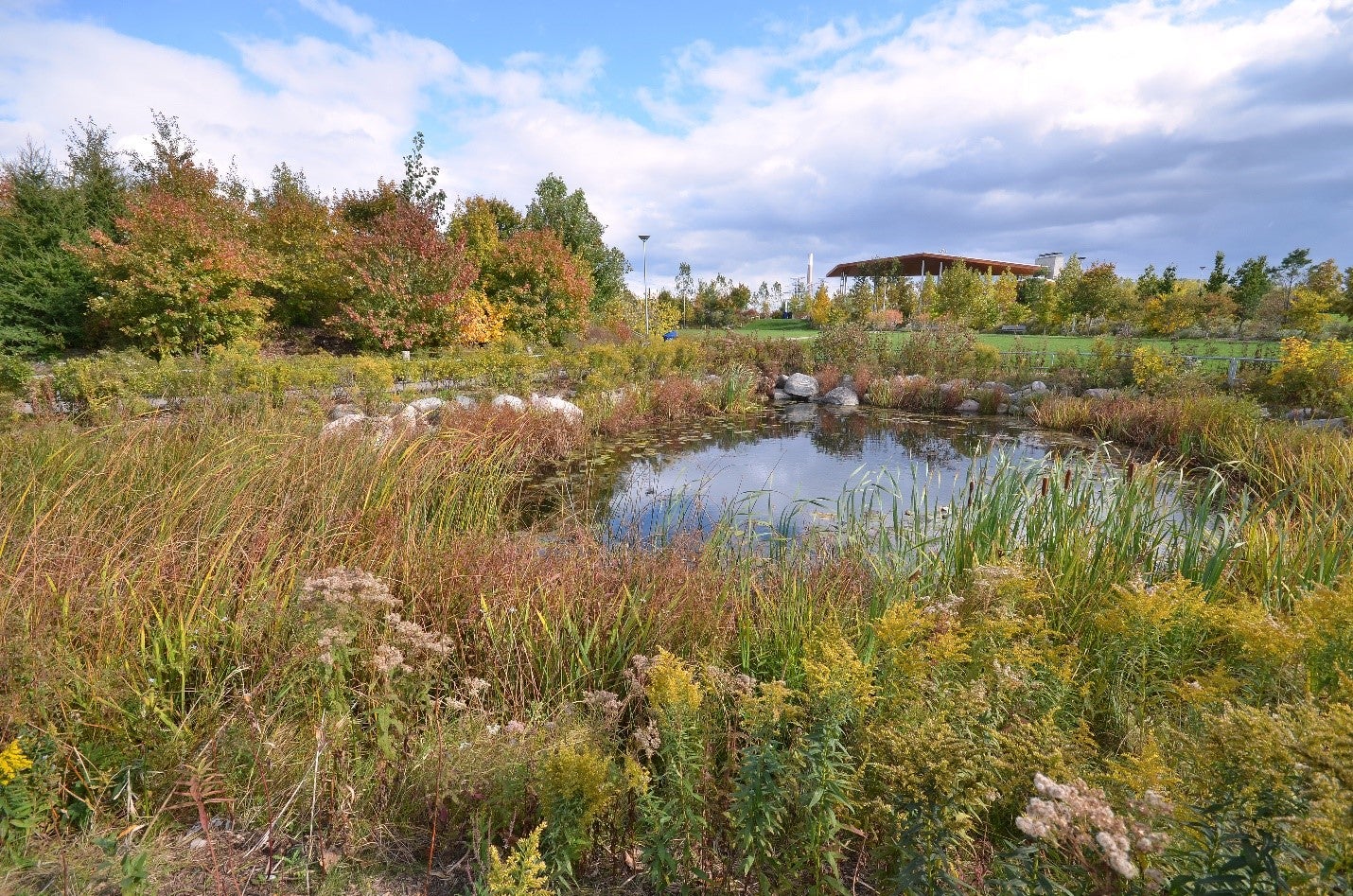
The award-winning Corktown Common is a beautiful multi-use park that is located atop of a Flood Protection Landform, a sophisticated engineered feature that protects a 210 hectare area from flooding.
To continue pushing the bar on sustainability and innovation, and to ensure Waterfront Toronto and this new framework are at the forefront of global leadership, we have assembled a steering committee that includes internationally recognized thought leaders in key areas of sustainability, including climate change resilience, smart cities, and water management. The committee will provide us with high level direction and strategy recommendations, and includes representatives from:
- C40 Cites: The C40 is focused on tackling climate change and driving urban action that reduces greenhouse gas emissions and climate risks, while increasing the health, wellbeing and economic opportunities of urban citizens.
- Cisco: Cisco Smart + Connected Communities is helping city leaders address problems such as traffic jams, overcrowding, pollution, resource constraints, inadequate infrastructure, and the need for continuing economic growth by using intelligent networking capabilities.
- Toronto Atmospheric Fund: Toronto Atmospheric Fund invests in urban solutions to reduce greenhouse gas emissions and air pollution. Its ultimate goal is reducing Toronto’s greenhouse gas emissions by 80% by 2050.
- Ryerson University: Ryerson School of Urban and Regional Planning focuses on urban sustainability, environmental design, environmental planning, urban governance and public engagement.
- Kingdom of the Netherlands: Kingdom of the Netherlands has a strong record in the area of spatial planning, water management, nature policy and environmental performance. Represented by Henk Ovink, Special Envoy for International Water Affairs for the Kingdom of the Netherlands.
In addition, we have engaged a larger advisory committee, which will provide more detailed input on strategies and targets, as well as editorial commentary on the content of the framework plan. The members of this committee offer local context and include regulatory authorities and project partners who will ultimately be directly or indirectly involved in or affected by waterfront revitalization. Members of this committee include leaders from the City of Toronto, Toronto and Region Conservation Authority, Ministry of the Environment and Climate Change, University of Ontario Institute of Technology, Minto, Civic Action, and Healthcare of Ontario Pension Plan.
With our focus on the next phase of revitalization, the new framework will apply to priority projects such as the naturalization of the mouth of the Don River, East Bayfront transit, infrastructure, and public realm initiatives. These projects will benefit from the most current thinking on climate change resiliency, innovation and smart cities initiatives, and will demonstrate our continued commitment to sustainable city building and market transformation.
Visit our Green & Resilient Communities page to learn more about our commitment to making the city’s waterfront both a national and global model for sustainability and resilience.

